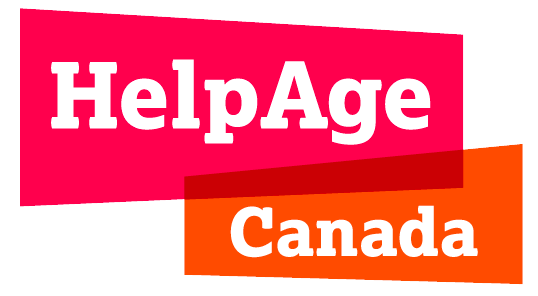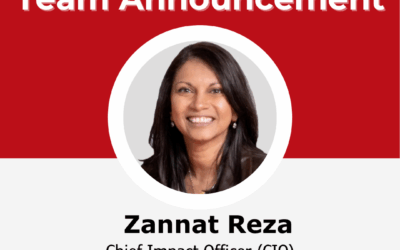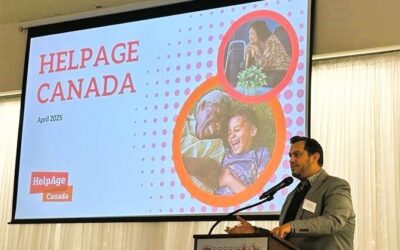Our Blog
Find out more about our work and how we’re driving community-led action to make a better world for people of all ages. Read about stories of older people, humanitarian campaigns, newsletters, announcements, and more.
Have a specific article in mind? Use the search bar or select a category you are interested in.
Pan-Canadian CBSS Sector Virtual Check-In: Shared Purpose & Progress
This virtual event brought together Community-Based Seniors’ Services (CBSS) partners from across the country to reconnect, reflect on recent progress, and explore what’s ahead. Highlights include reflections on the 2024 CBSS Summit, a vision for the year ahead, a...
HELPAGE CANADA WELCOMES FIRST CHIEF IMPACT OFFICER ZANNAT REZA
HelpAge Canada is delighted to announce the appointment of Zannat Reza as the organization’s first Chief Impact Officer (CIO), effective Monday, June 2, 2025. Zannat joins our senior leadership team alongside Kahir Lalji, Chief Executive Officer (CEO); Dr. Raza...
Building Momentum in Manitoba for Community-Based Seniors’ Services
HelpAge Canada CEO Kahir Lalji MA, CPG, and Felicity Watson, Lead, Canadian Programs, were in Winnipeg today for an inspiring provincial consultation, led by event organizer and partner Connie Newman, Executive Director of the Manitoba Association of Senior...
HelpAge Canada in the Yukon: Listening, Learning, and Linking Local Voices to Bolster Access to Local Programs for Older People Across Canada
This week, HelpAge Canada CEO, Kahir Lalji, travelled to Whitehorse and Haines Junction to connect with older Yukoners and dedicated staff and volunteers from local Community-Based Seniors’ Services (CBSS) organizations in the territory. Alongside Gabrielle Gallant,...
A Global Victory for Older People – Now Canada’s Prime Minister Must Follow Through
A Global Victory for Older People – Now Canada’s Prime Minister Must Follow Through This week, HelpAge Canada CEO, Kahir Lalji MA, CPG attends the 58th session of the UN Commission on Population and Development, NYC, where a key theme is ensuring healthy lives at...
HelpAge Canada Announces Two Strategic Leadership Appointments
We are delighted to officially announce two key leadership appointments at HelpAge Canada, reflecting our commitment to service excellence and advancing the well-being, inclusion, and dignity of older adults in Canada and around the world. Effective April 1, 2025,...
Support Us
We appreciate the support of our generous donors in helping us create a world in which all older persons lead secure, healthy, active and dignified lives.





